Is Iodized Salt Good For You? 5+ Great Benefits To Your Health
Is iodized salt good for you?
Over the last few years, hundreds of research on the benefits of iodized salt have been conducted, and the majority of them confirm the requirement of taking iodized salt, especially for pregnant women and young kids.
However, although iodized salt is a dietary staple in numerous households, there is some uncertainty regarding what it is and if it is a required part of the diet.
This article will dig deeper into how iodized salt may influence your health and if you should use it.
Let’s get started!
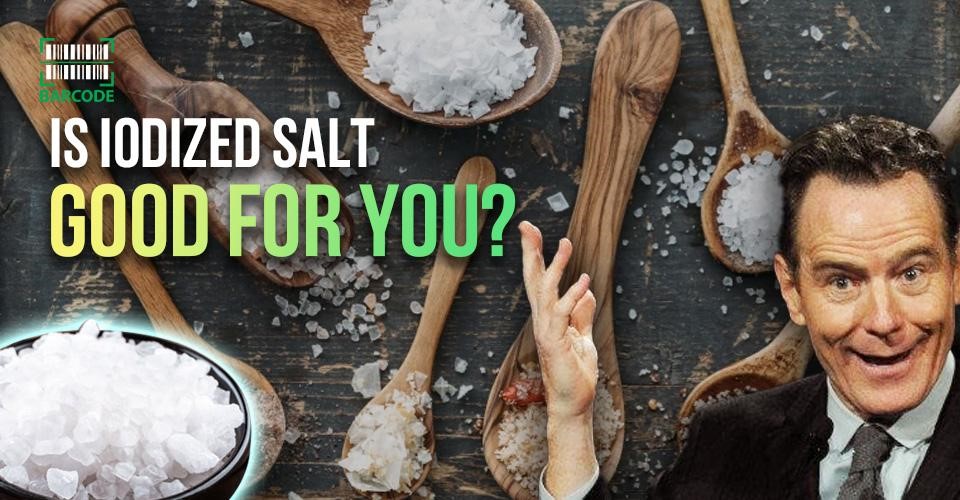
What are iodized salt benefits?
What Are The Benefits of Iodized Salt?
Iodine is among the trace elements that your body requires to function properly.
Seafood, eggs, and raw milk products are wonderful sources of the vitamin, but if you don't consume a lot of these items or eat foods cultivated in iodine-deficient soil, iodized salt is a great way to acquire enough iodine in your diet.
Yet, because of the dispute surrounding the efficiency of iodized salt, you should be cautious about where you think your iodine is coming from.
To combat iodine shortage, people mix iodine with table salt. Besides, there are numerous other health benefits of iodized salt in your diet.
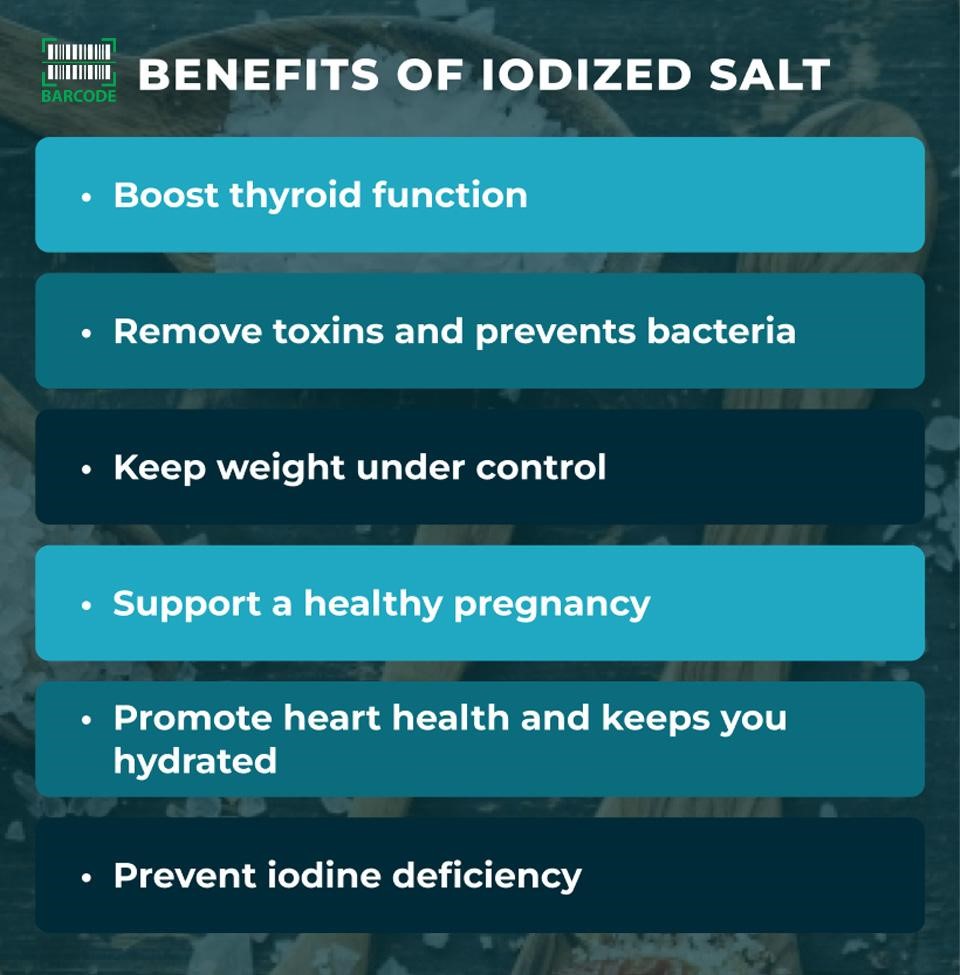
6 major iodized salt benefits to your health
Boost thyroid function
Iodine is required by your thyroid gland to boost the production of thyroid hormones such as thyroxine and triiodothyronine.
These hormones are essential for your health since they control your body temperature, blood pressure, and heart rate.
Moreover, thyroid hormones are required for proper bone and brain development during pregnancy and infancy.
A lack of iodine in your diet may result in thyroid gland hypertrophy. This is referred to as a goiter.
Remove toxins and prevent bacteria
Iodized salt has a negative effect on heavy metals such as lead and mercury. It works to reject pollutants and restore the proper pH level in your body.
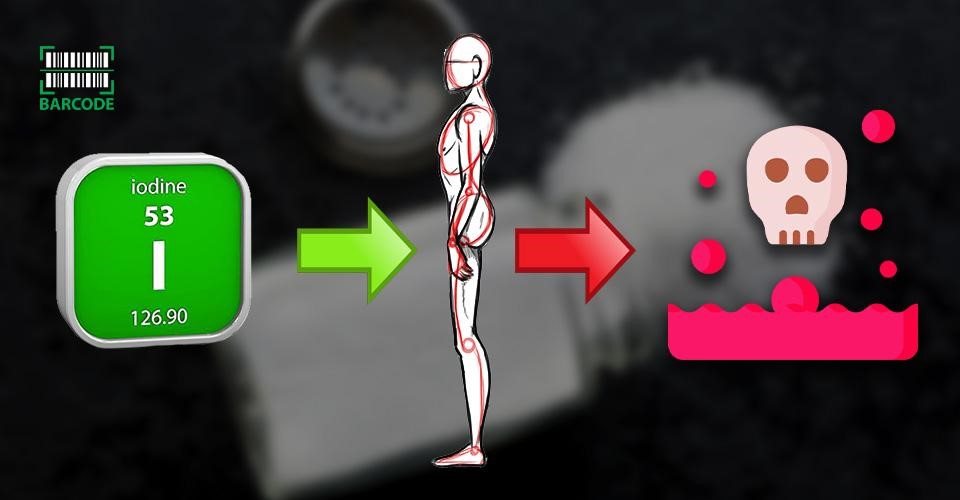
Iodized salt helps get rid of toxins in your body
Further, iodized salt helps to keep harmful bacteria at bay in the intestines. According to research, pathogenic bacteria can induce constipation, fatigue, and headaches.
Keep weight under control
The health of your thyroid has a direct impact on your metabolism. If you have a fast metabolism, it is possible that you will not gain a healthy amount of weight.
In addition, slower metabolism causes the body to retain more fat, resulting in weight gain.
Because your thyroid requires a healthy dosage of iodine to function properly, your metabolism is also affected by your iodine levels.
Support a healthy pregnancy
Iodized salt not only helps with bone and brain development, but it can also aid with cretinism, which impacts both the physical and mental growth of the unborn baby.
After birth, cretinism can cause a kid to lose speech and hearing, as well as affect his or her physical motions.

Taking iodized salt during pregnancy is necessary
For pregnant women, a healthy iodine level may reduce hypothyroidism and miscarriages. Hypothyroidism occurs when the body is unable to produce adequate thyroid hormones.
Thyroid issues can arise or worsen during pregnancy and are frequently alleviated by increasing iodine levels.
Promote heart health and keeps you hydrated
Iodized salt aids in the production of hormones that regulate heart rhythm and blood pressure.
It also promotes the burning of excess fat deposits that can contribute to heart disease.
Salt improves optimum hydration levels and electrolyte balance. This equilibrium is essential for the efficient functioning of tissues, cells, muscles, and organs.
All body components need water to function, and salt plays a role in the maintenance of proper water levels. Dehydration increases your risk of dizziness, exhaustion, and muscular cramps.
Prevent iodine deficiency
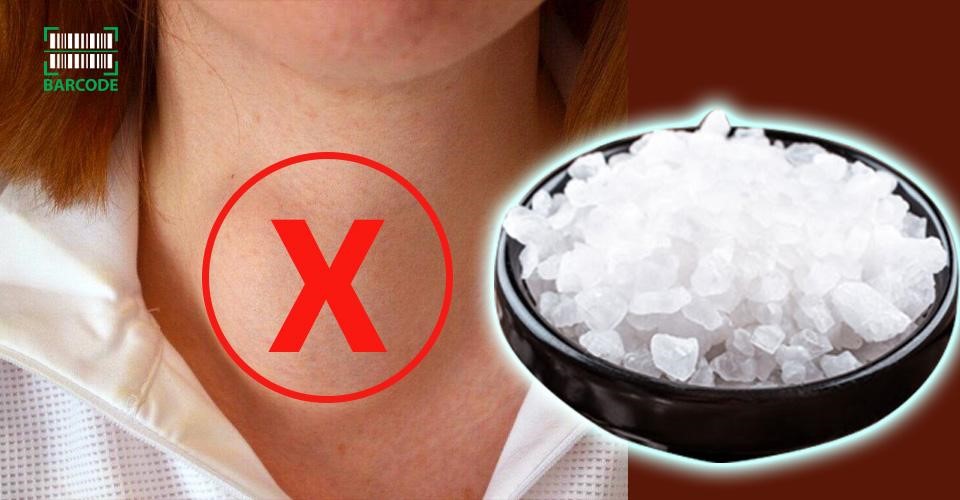
Taking iodized salt helps prevent iodine deficiency
Iodine deficiency is ubiquitous, particularly in Africa and Asia, but also in huge sections of Eastern Europe.
Only a few nations now have sustained iodine sufficiency, and over one-third of the global population lives in areas with some iodine deficiency.
With that in mind, iodized salt is regarded as the most acceptable form of iodine supplementation for preventing iodine-deficient illnesses since it is ingested by practically everyone in fairly equal amounts throughout the year.
What Are The Side Effects of Iodized Salt?
Is iodized salt healthy? Yes, iodine is known as a trace element that occurs naturally in some foods. It is easily added to others and is accessible as a dietary supplement.
However, excessive consumption of iodine-containing salt may result in the following adverse effects:
-
Thyroid suppression
-
Excess fluid in the lungs
-
Acne at high doses
-
Swelling of the skin
-
Headache
-
Diarrhea
-
Fever
-
Hives
-
Change in taste
-
Joint pain
-
Eosinophilia
-
Anaphylactic reactions
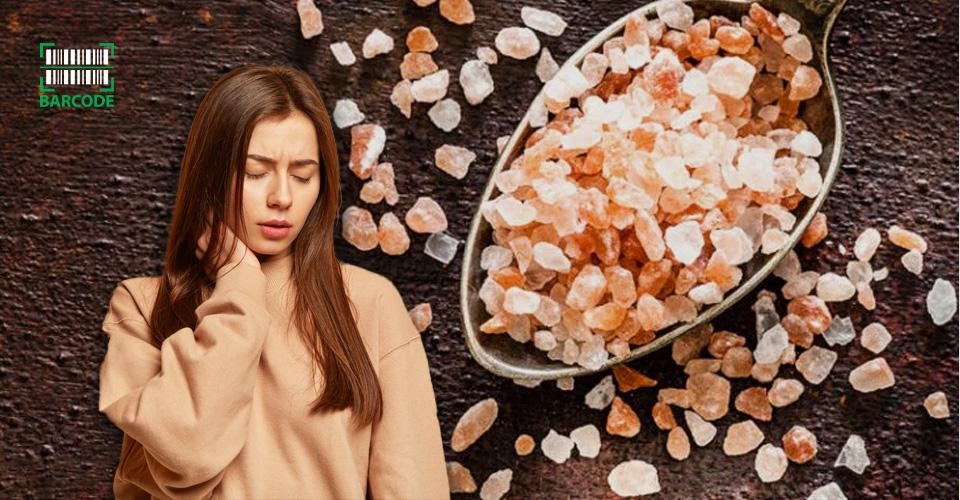
Some adverse effects of over taking iodized salt
Certain drugs may be affected by iodine. Thus, if you are on drugs, particularly those related to hormones, always consult your doctor to find out how much salt or iodine is prescribed.
What Are The Health Risks of Iodized Salt Deficiency?
As previously said, numerous individuals around the world are at a higher risk of iodine deficiency.
It is regarded as a public health issue in 118 countries, with an estimated 1.5 billion individuals at risk.
Micronutrient deficiencies, such as iodine, are becoming more common in some locations, particularly in areas where iodized salt is scarce or soil iodine levels are low.
Furthermore, certain categories of individuals have a greater likelihood to be iodine deficient. Women who are breastfeeding or pregnant, for instance, are at a higher risk of insufficiency as they need more iodine.
Vegans and vegetarians are likewise more vulnerable.
One study examined the diets of 81 people and discovered that 25% of vegetarians and 80% of vegans were deficient in iodine, compared to only 9% of those on mixed diets.
That is why knowing some vegan sources of iodine is important.

Iodine deficiency is a common disease
Iodine deficiency can cause a variety of serious health problems, including:
-
Hair loss
-
Impaired fetal and infant development
-
Trouble in learning during children
-
Fatigue
-
Fibrocystic breast disease
-
Radiation-induced throat cancer
-
Weight gain
-
Goiter
-
Dry skin
-
Increased sensitivity to cold
How Much Iodine Do You Need?
The quantity of iodine you should ingest every day is determined by your age. Pregnancy and nursing are also important factors for women.
The following are the recommended daily intake of iodine:
|
Birth to 6 months |
110 mcg |
|
Infants 7 to 12 months |
130 mcg |
|
Children 1 to 8 years |
90 mcg |
|
9 to 13 years |
120 mcg |
|
Teens 14 to 18 years |
150 mcg |
|
Adults |
150 mcg |
|
Pregnant women |
220 mcg |
|
Breastfeeding women |
290 mcg |
Should You Use Iodized Salt?
If you eat a well-balanced diet that includes the best sources of iodine in foods, like dairy products or seafood, you are likely to get enough iodine through food alone.
If you think you are at a greater chance of iodine deficiency, you should consider taking iodized salt with the recommended daily intake mentioned above.
Tata salt is a well-known product that you can try. It is regarded as the first branded iodized salt in India that uses vacuum evaporation technology to offer a sanitary and healthful alternative.
Furthermore, it is a product with good taste that is reasonably priced. A pinch of this salt will give you an ideal flavor.

Using iodized salt is good if taken in a moderate amount
Furthermore if you fail to consume at least a couple servings of iodine-rich meals each day, iodized salt may be a simple option to ensure you're getting enough.
Importantly, you can consider using it in conjunction with a nutritious, diverse diet to make sure you are getting enough iodine and other nutrients.
Sea salt is frequently advertised as being more nutritious than table salt. However, the nutritional content of sea salt and table salt is the same.
The sodium content of sea salt and table salt is comparable. Whatever type of salt you prefer, use it sparingly.
If you are aware that you seldom eat natural sources of iodine, or if you experience an increased iodine requirement for health reasons, it's best to stick to iodized salt.
It is a refined table salt with added iodine to aid in the prevention of iodine deficiency and thyroid issues.
Nevertheless, because iodized and non-iodized salt has almost the same amount of sodium, one is not healthier than the other.
Raw sea salt includes some iodine, but not sufficient to meet daily requirements. Nonetheless, it contains magnesium, potassium, calcium, and other minerals.
Other sources of iodine are so necessary to meet iodine requirements.
Wrapping Up
To summarize, even if you suffer from high blood pressure, avoid cutting out salt completely, utilize only iodized salt to keep your thyroid healthy, and maintain the general wellness of all your organs. Also, it is a good idea to consume fewer processed meals and more homemade dishes made with iodized salt to safeguard your iodine levels.
After reading our post, we hope you have a clear answer to the topic “Is iodized salt good for you?”. And stay tuned for more exciting information.
Sources:
https://www.ncbi.nlm.nih.gov/pmc/articles/PMC9006116/#:~:text=see%20Delange%202001
https://www.ncbi.nlm.nih.gov/pmc/articles/PMC3074887/
https://www.ncbi.nlm.nih.gov/pubmed/12748410


.jpg)
11 Comments
Jessica Hill
I have two thyroid nodules, one less than 1 cm, the other a little more. I had the ultrasound last year and my bloodtests were normal. I have been using 150 mcg iodine supplement for the last year 3-4 times a week. Last weeks, I noticed that my throat is swelling a little. I am not sure what I am doing wrong. May I be getting too little iodine? The doctor told me not to take an iodine supplement and that strawberries & walnuts have iodine but to get the required amount I'd have to eat like 60 strawberries per day and the amount in seaweed is variable. I really don't know if I am doing something wrong. I feel exhausted most days but I am also depressed and using antidepressants. I was thinking whether I should be using iodized salt instead. Is using iodized salt better than taking an iodine supplement? How much iodized salt is recommended for those with nodules?
Leave a Comment
Your email address will not be published. Required fields are marked *nicole
the idea with iodized salt is just use a normal amount while cooking
Leave a Comment
Your email address will not be published. Required fields are marked *Justin Davies
First, get your thyroid levels checked. Your TSH level may have dropped to low, due to the iodine supplements. Too much iodine can cause hyperthyroidism.
Leave a Comment
Your email address will not be published. Required fields are marked *Nicholas Thomas
What is the chemical formula of iodized salt?
Leave a Comment
Your email address will not be published. Required fields are marked *Barcodelive
It doesn't have a chemical formula, it is a simple mixture of sodium chloride and sodium or potassium iodide or iodate at about 5-25 parts per million.
Leave a Comment
Your email address will not be published. Required fields are marked *Hema Edwin
Is iodized salt saltier than non-iodized salt?
Leave a Comment
Your email address will not be published. Required fields are marked *Barcodelive
Iodized salt is salt that contains small amounts of sodium iodide or potassium iodide. It's normal salt that has been sprayed with potassium iodate. It looks and tastes the same!
Leave a Comment
Your email address will not be published. Required fields are marked *Edward Marshall
Does Iodized salt affect blood pressure?
Leave a Comment
Your email address will not be published. Required fields are marked *Barcodelive
The amount of salt you eat has a direct effect on your blood pressure. Salt makes your body hold on to water. If you eat too much salt, the extra water stored in your body raises your blood pressure. So, the more salt you eat, the higher your blood pressure
Leave a Comment
Your email address will not be published. Required fields are marked *Monica Kulkarni
What will happen if a person does not takes iodised salt?
Leave a Comment
Your email address will not be published. Required fields are marked *Barcodelive
A small amount of iodine in a person’s diet (0.15 mg/day) is needed for proper function of the thyroid gland which releases hormones involved in metabolism. In medieval times populations far removed from the ocean didn’t get enough iodine in their diets and developed goiters, a swelling on the neck caused by an enlarged thyroid gland in extreme cases.
Leave a Comment
Your email address will not be published. Required fields are marked *Leave a Comment
Your email address will not be published. Required fields are marked *